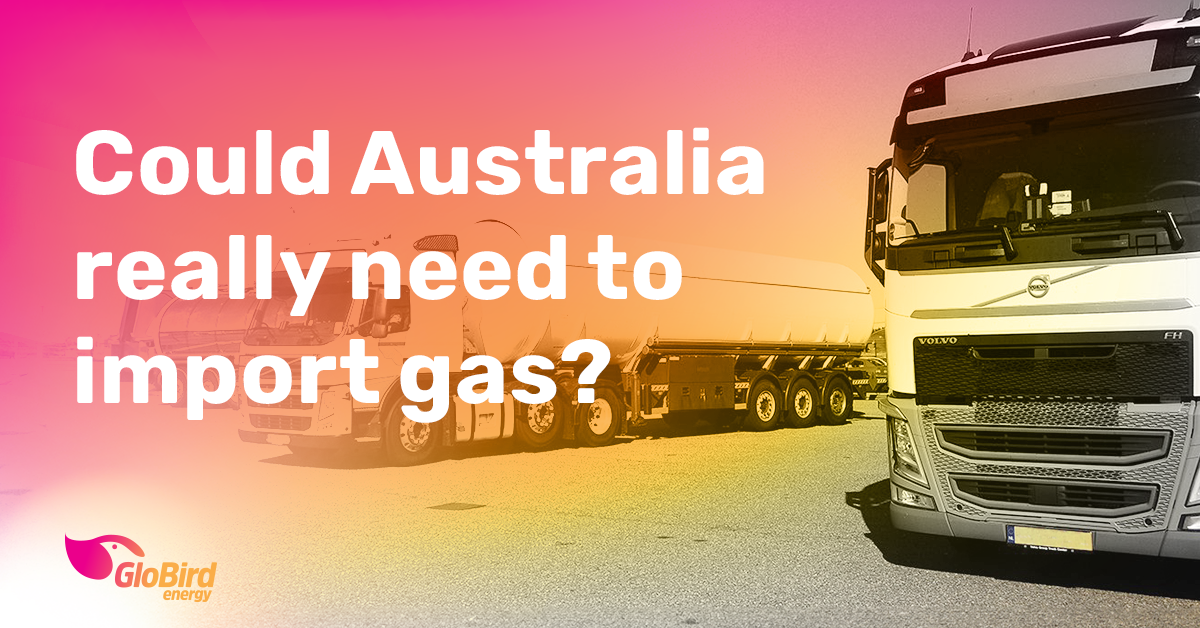The week leading up to Easter saw the 11th annual Australian Domestic Gas Outlook (ADGO) conference held in Sydney. It was touted as bringing together ‘the who’s who of the industry, for high-level discussions articulating future directions’.
As you can imagine, we were very interested in what was discussed by the senior industry leaders who attended, which included gas producers, pipeline operators, retailers, end-users, regulators, and policymakers.
Particularly in light of the Australian Energy Market Operator’s (AEMO) latest snapshot of the Eastern states’ gas industry which warned that shortages were likely to become more pronounced in 2026 and structural by 2028.
What’s happening with gas at the moment?
Before we look at some of the key comments that came out of the conference, let’s quickly review the background that we’ve covered previously.
The Victorian government banned fracking in 2017 and, with no further exploration of the gas fields in Bass Strait, essentially signalled a future with no gas production in Victoria. As reserves from Bass Strait run out in the next five years or so, Victoria’s Longford gas plant is scheduled to close from 2028 (a big part of the reason for AEMO’s warning, mentioned above).
Last year, the Victorian government also banned gas connections for residential builds (which we wrote about last August in the article How will Victoria transition away from household gas?).
A year ago, with global concerns about gas supply in the wake of Russia’s invasion of Ukraine, we asked Will we run out of gas this winter?, however, eight months earlier (in August 2022), we were asking How did Australia come to run low on gas?.
So, as you can see – and feel free to read any of those articles if you want more context – the current and future supply of gas is an issue that’s been clearly on the agenda for some time.
Hold on. Isn’t Australia one of the biggest gas producers in the world?
A lot of people do scratch their heads when they try to reconcile the facts that Australia is one of the world’s biggest exporters of liquefied natural gas (LNG), with almost 80 per cent of what we produce being sold to other countries, yet AEMO is warning of domestic shortages … again.
One of the big problems is a mismatch between where Australia produces its gas and where it’s most used. That is, a lot of production is done in Queensland whereas most of the demand and consumption is in the colder-in-winter southern states, particularly Victoria and, to a lesser extent (based on population, not temperature), Tasmania.
It doesn’t make economic sense to expand the existing pipelines from Queensland to meet the higher winter-time demand in Victoria, particularly when demand is forecast to gradually decline as more households switch away from having a gas connection.
But then what is the economic viability of building new import terminal capacity and bringing in LNG from overseas, not to mention the environmental impact? The development and operation of the import terminals, as well as the additional processing and transportation of the LNG, will create emissions and pollution that, to some extent, defeats the purpose of stopping local gas production in the first place.
So, what are those senior industry leaders saying?
All of that brings us to thinking about some of the comments and conversations coming out of the annual ADGO conference.
Jane Norman, the boss of Adelaide-based oil and gas explorer Cooper Energy, made the important point that “energy security is national security”.
“I can’t believe we’re so relaxed about giving away our building and construction sector supply chains, our food production supply chains and becoming reliant on imports,” Ms Norman said.
“Especially in the current environment where you’re seeing a lot of international sea lanes at risk and so on.”
Springmount Advisory managing director Tom Quinn suggested that exports should be limited during shortfalls to protect Australian homes and businesses.
“The nation’s security shouldn’t be held hostage to the greed of gas exporters,” Mr Quinn argued.
Adam Watson, the chief of gas pipeline operator APA, questioned why state governments across the country were extending the lives of coal generators. He argued that the most efficient way to decarbonise is by retiring coal-fired power stations and switching to a system that ran mostly on renewable energy but was backed by firm sources including gas.
“For a country so rich in natural gas resources, it’s a bizarre conversation for our nation to be having, when we haven’t yet unlocked the potential of our own domestic supply,” Mr Watson said.
“If decarbonisation and lowering the cost of our energy is our objective, neither extending the use of coal generators nor the development of LNG import terminals are solutions. These are just higher emissions, higher cost distractions, from what really needs to happen.”
Meanwhile, perhaps one of the most confronting comments came from a Western Australian MP in referencing the Victorian government’s opposition to gas development.
Peter Tinley, who is heading an inquiry into WA’s domestic gas reservation policy, said: “I find it ironic that some jurisdictions ban fracking, for example, but will eventually be importing fracked gas,”.
“How do you correlate that? I find that nonsensical.”
